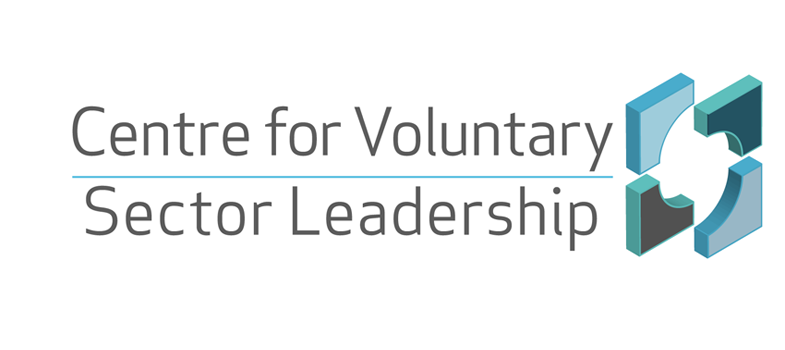5 Influence, meaning-making and micro-level power
For many of us, working with power asymmetry is not comfortable. It is perhaps for this reason that we have observed that many collaborative partnership meetings seem to avoid surfacing these asymmetries, and instead proceed as if power is shared equally, or as if ‘partnership’ in some way negates power.
In Carol’s research, she noted a contrast between this public performance of collaboration and informal backstage discussions. Participants suggested that, even where they are well aware of the greater resources, influence, importance or position of the organisations with which they collaborate, they still believe they are able to make a difference, and they focus this belief on the relational aspects of collaboration. Huxham and Beech (2008) refer to power at this relational level as ‘micro-level power’.
Micro-level power is seen in day-to-day activities, in ‘points of power’ which are played out in relationships between people as they collaborate. This contrasts with macro-level power, which is based on resources, importance and structural position (Huxham and Beech, 2008). In other words, in the context of inter-organisational collaboration, the macro-level power of an organisation is associated with its control of resources that others need; its importance to the strategic purposes of other organisations; and its position in the structures of collaboration. These all enable an organisation to wield power over others.
Research tells us that power is exercised more subtly at the micro-level through discourse and meaning-making. Discursive approaches focus on the use of language as a source of power. Although this may sound like a somewhat obscure academic concept, we all have experiences that reinforce the idea that words have power. This is closely related to the concept of ‘voice’ (Hirschman 1970). In the voluntary sector context, ‘voice’ is the ability to name, frame and campaign on issues of concern to the sector – rather than simply acting on issues which have previously been recognised by society. This approach also resonates with the idea in the leadership literature that leadership practice can be thought of as associated with meaning-making (Smircich and Morgan, 1982).
In one example, a research participant from a voluntary organisation explained that in local partnership meetings the first interpretation of national policy is often provided by voluntary sector representatives, as complex public sector bureaucracy is still determining an official line. This first micro-level interpretation impacts on the continuing interpretation and enactment of policy at the local level. It becomes embedded in the notes of meetings, is repeated by public sector managers, and played back into decision-making forums.
The work of London Citizens provides a second example of the power of discourse and meaning-making in the discursive production of the ‘living wage’. As you discovered in Activity 2, the living wage concept originated with parents in East London working two minimum wage jobs who were unable to support their family. In other words, the living wage started as a framing of a particular social issue by the people who encountered that issue in their daily lives. Through London Citizens, communities, businesses, campaigners and faith groups came together to campaign for wages which are good for business, but also good for the individual and for society. Over time, the living wage campaign developed its own identity as a national movement. The Living Wage Foundation has successfully persuaded employers of all sizes to implement a Living Wage for their staff, and the term ‘living wage’ has entered the political discourse.
Activity 4 Influencing words
Look at the front page of a website of a voluntary organisation you consider to be influential. Select 10-12 key words from the web page that you consider influencing words. Write down the sentences in which these words appear. Now reflect on why these key words stood out for you. What is it about the language and the meaning they make that began to influence you?
Comment
Most of us probably feel that our words are unlikely to have the impact of the living wage campaign. However, we recognise that the history of the voluntary sector is littered with interpretations of policy and the naming of social need by small groups of people that ultimately change the way society understands itself and its limitations. Think here of the modern day slavery movement. At the turn of the twenty-first century, very few people would have accepted that ‘slavery’ was a significant social issue requiring changes in social policy. Surely, slavery had been confined to history? Now we have the Modern Slavery Act in England and Wales and the Human Trafficking and Exploitation Act in Scotland – all because a small group of individuals and voluntary groups raised their voices and offered a meaning of ‘slavery’ to make sense of relationships between people that are considered unacceptable in the twenty-first century.
So, how might you draw on the two ideas of micro-level power and leadership as meaning-making in your own leadership practice?
Beech and Huxham (2008) argue that every time individuals have the potential to influence the discourse or to take action within a collaboration, this can be seen as a potential source of power. Often, individuals are unaware of these ‘points of power’, but at this micro level all individuals can influence the direction of the conversation, the text of a document or the nature of agreed actions; they can resist the imposition of ‘agreed’ interpretations and offer alternatives. Micro moments of power can be impacted by any individual, with or without formal position. While this does not immediately impact on asymmetries of power at the macro level, micro-level power will occasionally result in macro-level changes, as suggested by the living wage example.
Activity 5 Micro power
Review your notes for Activity 1. You should now be able to see that we are asking you here to identify points of micro power. Tell us on our discussion forum [Tip: hold Ctrl and click a link to open it in a new tab. (Hide tip)] whether you find this approach helpful to your leadership practice – or not. What do you see as the limitations of this approach to negotiating the power dynamics of collaboration? Make sure you post your comments within the correct thread for this activity.
Comment
One criticism of the micro-level approach to power is that, in focusing attention on language and relationships, it fails to address embedded structural inequalities. A related criticism is that it reduces power dynamics between organisations to the inter-personal level, and consequently gives space to dominant personalities to impose themselves on the collaboration. Join the discussion in our collaborative forum to share your thoughts on micro-level power and practices of meaning-making. Is this a way to amplify voluntary sector voice, or a failure to take sufficient account of the power asymmetry in which the sector operates?
4.2 Power asymmetry

